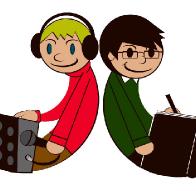Who should be responsible for detecting plagiarism?
Although I have edited and reviewed many academic papers, I have never been asked by authors or publishers to check for plagiarism.
Yet there is a lot concern now with the problem because it is so easy to copy and paste in the process of writing.
Not all plagiarism is done with an intention to deceive... it is something that may happen when unskilled writers:
(a) find it difficult to rephrase expressions of common ideas or information that do not require reference to a source (because they are common knowledge), or
(b) do not recognise that a direct quote with reference is acceptable, or preferable, for a particular idea or piece of information.
I have rejected a PhD thesis that included entire pages of text that had been copied from the publications of others. The better quality of the writing was an obvious sign that the material had been copied, and this was easily confirmed by a search on the internet.
I good source of information on the subject of plagiarism, and how to recognise it, is the home (and homely) page of M. W. George, a professor of English (who happens to look a lot like my older brother):
http://faculty.millikin.edu/~mgeorge/plagiarism/
I wonder if any members of our network have ever been asked to look for plagiarism when employed as editors, proofreaders, or reviewers?
Is there any consensus on who should be responsible for detecting plagiarism?
P.


Publishers sometimes do check submissions for plagiarism. PagePressJournals.org has a clear declaration on the matter , and recommends the following articles:
Lewis J, Ossowski S, Hicks J, Errami M, and Garner HR (2006) Text similarity: an alternative way to search MEDLINE . Bioinformatics 22:2298-2304.
Long TC, Errami M, George AC, et al. (2009) Responding to Possible Plagiarism . Science 323:1293-1294.
Roig, M. Avoiding plagiarism, self-plagiarism, and other questionable writing practices: A guide to ethical writing. St Johns University.
Since authors may not be aware that they areplagiarizing, it's up to the editor to check. The Internet has websites designed for checking for plagiarism. On editor Listservs that I am on, editors report finding instances of plagiarism (and wonder how to broach the author). If an author needs help paraphrasing text, they should enlist the services of a good editor to help them.
I believe it is something that everyone along the way should be responsible for detecting, especially if a peer-review process is involved. Those individuals involved in peer review would be the most likely to recognize plagiarism in the context of what's been published in their field; others more accustomed to editing text all day might see the variation in writing styles, as you did. My sister teaches political science and is so aware of it in her students' work, that she caught her minister filching from online sources in his Sunday a.m. sermons. I think it's one of those undercurrents of awareness that anyonein the publication process must deploy nowadays, an unfortunate, usually unspoken, reality.